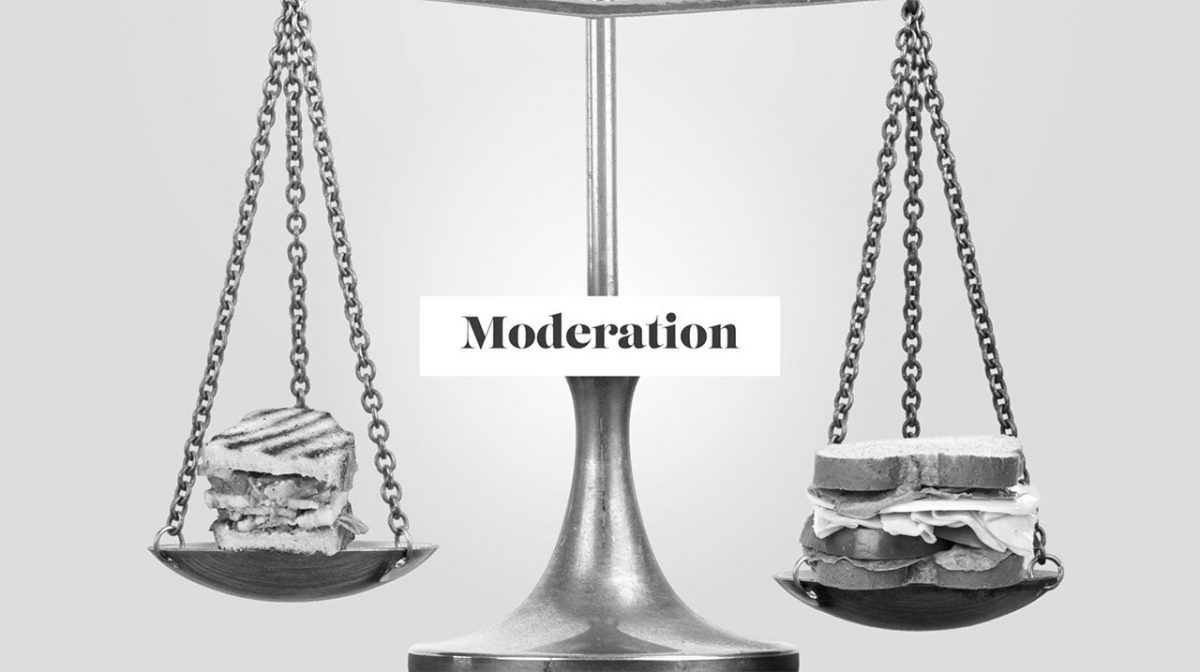Introduction
In our complex and ever-changing world, making decisions is an integral part of our lives. Whether it’s choosing between career paths, deciding on public policies, or even making personal choices, we are constantly faced with the challenge of finding the right balance. One mental model that often influences our decision-making is the concept of moderation. Moderation is the tendency to favor a middle-ground approach, seeking balance and avoiding extremes. While it may seem like a rational and sensible mindset, it can lead to irrational decisions that hinder progress and limit our potential.
Understanding Moderation
Moderation, at its core, refers to the inclination to choose the middle ground, to avoid extremes and pursue a balanced approach. It stems from the belief that extremes are undesirable and that the optimal path lies somewhere in between. This mental model is deeply anchored in human psychology, drawing on our preference for stability, harmony, and familiarity. We naturally gravitate towards moderation because it offers a sense of security, reducing uncertainty and the potential for negative outcomes.
Relevance in Decision-Making
Moderation holds significant relevance in decision-making processes as it often influences our choices, both consciously and subconsciously. It can manifest in various aspects of our lives, from personal decisions to business strategies and public policy-making. By understanding the prevalence of moderation, we can identify instances where it impedes our ability to make optimal choices.
Examples of Moderation in Various Contexts
- Personal Life Decisions: Consider an individual contemplating a career change. Despite being deeply dissatisfied with their current job, they choose to stay because it provides stability and a predictable income. The fear of venturing into the unknown and the lure of comfort steer them away from taking the risk of pursuing a career that aligns with their true passion. By succumbing to moderation, they settle for mediocrity, sacrificing their long-term fulfillment for short-term security.
- Business Scenarios: In the business world, moderation can hinder innovation and growth. Companies that cling to traditional methods and resist change often find themselves at a disadvantage in a rapidly evolving market. Kodak, a once dominant photography company, fell victim to moderation by underestimating the potential of digital photography. Despite early recognition of the technology, they hesitated to fully embrace it, fearing it would cannibalize their lucrative film business. This lack of boldness and over-reliance on the middle ground ultimately led to their decline.
- Public Policy-Making: Moderation can also impact policy decisions. In the face of polarizing issues, politicians and policymakers may be inclined to adopt a moderate stance, aiming to appease various stakeholders and maintain social order. However, this often results in watered-down policies that fail to address the root causes of the problem or provide meaningful solutions. The lack of decisive action in climate change policies, for instance, can be attributed to a moderation bias, where compromises are made at the expense of long-term sustainability.
Psychological Biases and Underpinnings
Several cognitive biases contribute to the prevalence of moderation. One such bias is the status quo bias, which favors maintaining the current state of affairs due to familiarity and a resistance to change. The anchoring bias also plays a role, as people tend to rely on existing reference points or averages when making judgments. The mere exposure effect, where familiarity breeds preference, can further reinforce the allure of moderation.
Moreover, the fear of regret can amplify the moderation bias. People are often more concerned about regretting an action they take than regretting an action they fail to take. This fear drives them towards the safer middle ground, as it provides a sense of protection from potential future regrets. However, this mindset can stifle growth and prevent the pursuit of opportunities that lie beyond the boundaries of moderation.
Identifying and Avoiding Moderation
To identify when moderation might be influencing our decisions, it’s crucial to be aware of our own biases and thinking patterns. Self-reflection and mindfulness can help us recognize when we are compromising our aspirations and settling for mediocrity. Here are some strategies to avoid falling into the trap of moderation:
- Recognize your comfort zone: Be aware of the boundaries within which you feel most comfortable. Challenge yourself to step outside those boundaries and explore new possibilities.
- Embrace calculated risks: Understand that progress often requires taking risks. Evaluate the potential benefits and drawbacks of a decision objectively, rather than being driven solely by a desire for balance and security.
- Seek diverse perspectives: Surround yourself with people who challenge your thinking and provide alternative viewpoints. This helps counteract the tendency to gravitate towards moderation and promotes more nuanced decision-making.
- Set audacious goals: Instead of settling for average or moderate goals, dare to dream big. Push yourself beyond your comfort zone and strive for excellence, even if it means embracing uncertainty and potential failure.
- Regularly reevaluate decisions: Periodically assess the outcomes of your choices and reflect on whether they align with your long-term aspirations. Be open to making adjustments and course corrections along the way.
Conclusion
While moderation can provide stability and a sense of security, it often hinders progress and limits our potential. By understanding the prevalence of this mental model and the biases that contribute to it, we can avoid falling into the trap of mediocrity. It is essential to be aware of our own inclinations towards moderation and actively seek strategies to overcome them. By embracing calculated risks, setting audacious goals, and challenging our comfort zones, we can navigate the complexities of decision-making with clarity and purpose. Ultimately, awareness and active avoidance of the moderation mental model empower us to make more objective, transformative choices that lead to personal and collective growth.
